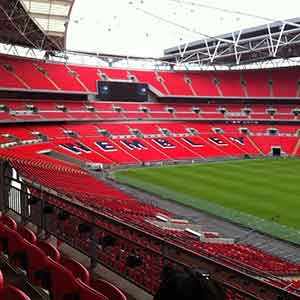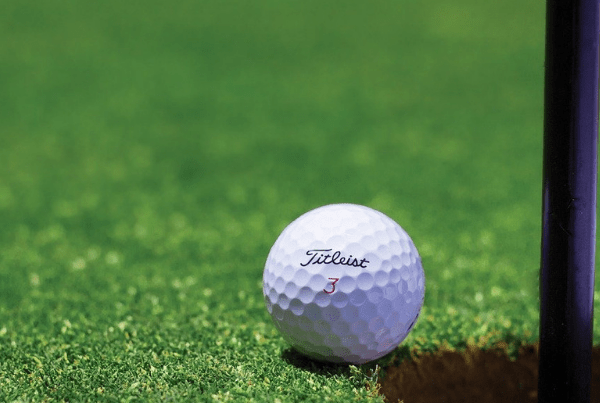The Carabou Cup Final is due to be held at Wembley on Sunday 1st March with two Premier League teams competing. Aston Villa were the first team to win the trophy in 1961. Manchester City were the last team to win the trophy in 2019. Incidentally, Man City have won it three times in the last four years. Unsurprisingly, the Mancunians go into the final as favourites. Aston Villa will take motivation being the underdogs and will have the added incentive to win their first trophy for 19 years.
History of the Competition
The English Football League (EFL) Cup is one of the three top-tier domestic competitions in English Football. It is generally considered of lesser value to the Premier League and FA Cup. Following the re-naming of the Football League to the English Football League in 2016, the League Cup was re-branded to the English Football League Cup.
It was first introduced in the 1960-1961 season as a mid-week evening tournament. This was on the back of the majority of English clubs installing floodlights in the 1950s. This allowed for games on weekday evenings and also games throughout the winter at the weekend. It was introduced by the Football League as the popularity of football increased, and to compete with the FA, and the FA Cup.
Sponsorship
It is currently known for sponsorship reasons as the Carabou Cup. The Energy Drink giants have sponsored the cup since 2017-2018 and have a deal which will take them to the 2019-2020 season. The three-year deal is said to be worth £18 million over the three seasons. There have been six other sponsors in the history of the tournament, with each sponsors having naming rights of the competition. These include the Milk Marketing Board (The Milk Cup), Littlewoods (Littlewoods Cup), Rumbelows (Rumbelows Cup), Coca-Cola (Coca-Cola Cup), Worthington (Worthington Cup), Carling (Carling Cup) and Capital One (Capital One Cup).
Some sponsors took it a step further and were adamant they designed their own trophy, away from the original design. These included the Milk Marketing Board who sponsored the Cup for five seasons from 1981 to 1986 and branded it The Milk Cup. Littlewoods sponsored the Cup for the next four seasons between 1986 and 1990 and called it the Littlewoods Challenge Cup, again with their own bespoke design.
Since 1990 all sponsors have used the original Cup design which is a three-handled Georgian-style cup with a separate base which was added at a later stage. It’s said to be worth about £20,000 and weighs 2.976kg and measures 27cm high by 20.5cm wide.
Tournament Overview
The tournament is played over seven rounds, with the semi-finals taking place over two legs. Top-tier teams receive byes to the later rounds, as do teams who are competing in European competitions. The final is held at Wembley and is the first domestic final of the season. It is held on the last weekend in February but falls on the 1st March this year, due in large to 2020 being a leap year.
The Winners of the Tournament qualify for European football and receive a place in the UEFA Europa League. If the winner also qualifies for Europe via another route, this European place is given to the highest-placed Premier League team who haven’t already qualified for Europe. England are the only nation, along with France, to award a European slot for it’s second cup competition.
5 Interesting Facts & Stats
- Record Wins – Liverpool have won the Cup a record 8 times, and also hold the record for most final appearances with 12.
- Most Goals – Ian Rush holds a few records including most tournament wins (5), most final appearances (6) and most goals scored in the tournament (50). Clive Allen from Spurs holds the record goals in one season with 12 in season 1986-1987.
- Youngest player – Harvey Elliot from Fulham (now Liverpool) played against Millwall aged 15 years and 174 days in 2018.
- Biggest win – West Ham beat Bury 10-0 in 1983, as did Liverpool beating Fulham 10-0 in 1986.
- Highest Scoring Game – 12 goals twice. Arsenal beat Reading 7-5 in 2012 and Dagenham & Redbridge drew 6-6 with Brentford in 2014.
Road to the Final
3rd Round
Preston 0 Man City 3
Brighton 1 Aston Villa 3
4th Round
Man City 3 Southampton 1
Aston Villa 2 Wolves 1
Quarter-Final
Aston Villa 5 Liverpool O
Oxford United 1 Man City 3
Semi-Final (Aggregate Score over two legs)
Man United 2 Man City 3
Aston Villa 3 Leicester City 2
Key Players to watch out for
Aston Villa’s key player is also one of their longest-serving players. He joined ‘The Villa’ aged six, made his debut in 2014 and now captains the club, 18 years after joining them.
Grealish plays as either a winger or as an attacking midfielder. He has scored 2 goals so far in the competition and will be hoping to add to his tally in the final. We have signed Jack Grealish memorabilia you can buy for the occasion.
Manchester City – Kevin De Bruyne
Affectionately known as KDB, De Bruyne is widely renowned for his dribbling, passing, tackling and shooting prowess. He is ranked as one of the best players in the world. He is yet to score in the EFL this season but he will be odds on to score in the final. You can buy the signed De Bruyne top featured here.
Who are Favourites / Our Prediction
Manchester City are outright favourites with the bookmakers making them 1/12 on to win. Aston Villa are 6/1 to win the Cup.
Our Prediction ….
Manchester City 3 Aston Villa 1
Good luck to both teams. We hope it’s an entertaining final and a great day out for the fans!








